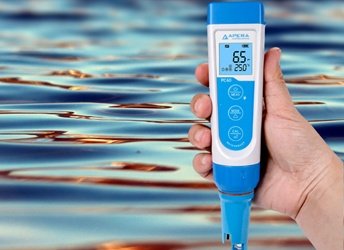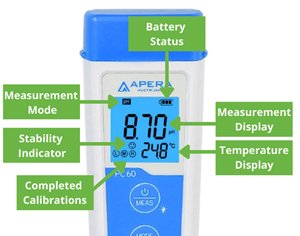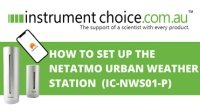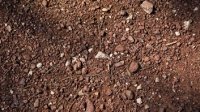Product Review: Apera PC60

The Instrument Choice Team of Scientists regularly reviews new and popular products, so when searching for the perfect scientific instrument for your application, you can make more informed decisions.
This edition reviews the Apera PC60, a premium multi-parameter water quality tester—a popular meter for brewing, pool and spa testing, education applications and more.
About Apera Instruments
For 30 years, Apera Instruments has focussed its energies on developing high-quality sensors for measuring and monitoring an assortment of water quality parameters, including; pH, ORP, conductivity, TDS, salinity, DO, and turbidity. This long-term dedication has resulted in reliable and accurate instruments used for thousands of applications worldwide.
Introducing the PC60
The Apera PC60 is a robust 5-in-1 tester that measures pH, conductivity, TDS, salinity and temperature. The PC60 comes with all the tools required to take water quality measurements, including:
- The Apera PC60 5-in-1 tester
- Calibration solutions (pH 4.00, pH 7.00, 12.88mS, 1413µS)
- Calibration bottles
- Storage solutions (3M KCI)
- AAA batteries
- Lanyard; and a
- Carrying case.
Key Features of the Apera PC60

Figure 1 Display of temp/pH/EC/TDS/salinity, indications of
completed calibrations, battery status, and a stability indicator
- 5-in-1 tester: The Apera PC60 simultaneously tests pH, conductivity, TDS, salinity and temperature in a fast, accurate, and reliable manner.
- Replaceable Multi-parameter Probe: At the end of its life, the probe is easily replaceable - at a fraction of the cost of a new meter.
- Auto-recognition of stable values: For consistency in measurement, the Apera PC60 automatically recognises and displays an indicator, so you know when to record your measurement. An optional auto-hold function will freeze the stable value on the screen, so you don't have to guess when to hold a measurement manually.
- Large LCD: At a glance, view the display of temp/pH/EC/TDS/salinity, indications of completed calibrations, battery status, and a stability indicator on the easy-to-read LCD (Figure 1).
- Colour Backlit Screen: The backlight changes colour between blue and green depending on the current mode.
- Made for tough environments: IP67 rated water and dustproof, you can take this meter virtually anywhere water quality measurements are required.
- Complete Kit: The Apera PC60 comes as a complete kit with calibration solutions, calibration bottles, storage solutions, AAA batteries, and a lanyard, all in a rugged carrying case.
- Battery Powered: Powered by AAA batteries which provide up to 1000 hours of continued use.
Apera PC60 Specifications
Technical Specifications |
||
|
pH |
Range |
-2.00 to 16.00 pH |
|
Resolution |
0.01/0.1 pH |
|
|
Accuracy |
±0.01 pH ±1 digit |
|
|
Calibration Points |
Automatic 1 to 3 points |
|
|
Temperature Compensation |
Auto Temperature Compensation 0 to 50°C (32 to 122°F) |
|
|
Conductivity |
Range |
0 to 200.0 μS; 0 to 2000 μS; 0 to 20.00 mS |
|
Resolution |
0.1/1 μS, 0.01 mS |
|
|
Accuracy |
±1% F.S |
|
|
Calibration Points |
Automatic 1 to 3 points |
|
|
Temperature Compensation |
Auto Temperature Compensation 0 to 50°C (32 to 122°F) |
|
|
TDS |
Range |
0.1 ppm to 10.00 ppt |
|
TDS Factor |
0.40 to 1.00 |
|
|
Salinity |
Range |
0 to 10.00 ppt |
|
Temp. |
Range |
0 to 50°C (32 to 122°F) |
|
Resolution |
0.1°C |
|
|
Accuracy |
±0.5°C |
|
|
LCD |
2-Color Backlit LCD, 180° Viewing Angle Blue: Measurement Mode; Green: Calibration Mode; |
|
|
Reading Lock |
HOLD |
|
|
Stable Reading Indication |
Smiley Face icon |
|
|
Low-Battery Warning |
Battery icon flashing, a reminder of battery replacement |
|
|
Self-Diagnosis |
Yes |
|
|
Heads-Up Function |
No |
|
|
Auto. Power-Off |
Yes, auto power-off in 8 minutes without operation |
|
|
Waterproof Rating |
IP67; Floatable |
|
|
Power |
DC3V, AAA batteries*4 |
|
|
Battery Life |
Continuous operation up to 1000 hours |
|
|
Dimensions& Weight |
Tester: (40*40*178) mm/ 133g; With case: (255*210*50) mm/ 800g |
|
Electrode Technical Specifications |
||
|
Application |
Regular water solution testing, such as pools and spas, hydroponics, tap water, drinking water, water treatment, aquaculture, etc. |
|
|
Type of Sensor |
pH: regular glass bulb sensor; Conductivity: BPB (Brush-Resistant Platinum Black) |
|
|
Replaceable |
Yes |
|
|
Temperature sensor |
Yes |
|
|
Range |
pH: 0 to 14 pH; Conductivity: 0.1 μS to 20.00 mS |
|
|
Temperature Range |
0 to 50°C (32 to 122°F) |
|
Apera PC60 Applications
Instrument Choice customers use this meter for;
- Brewing
- Pool and Spa Testing
- Education
- Aquarium and Aquaculture
- Water Testing; and
- Hydroponics.
What's in the box, and how to set up the Apera PC60
Conclusion
The Apera PC60 is a professional all-in-one pen tester suitable for an assortment of water quality testing applications.
Our scientists’ verdict of the Apera PC60?
“If we had to summarise the Apera PC60 into one word, it would be easy. Easy to use, easy to understand and easy to calibrate – what more could you ask for in a water quality tester?”
Want more information on the Apera PC60? Speak with an Instrument Choice Scientist: Call 1300 737 871 or email [email protected].

Also interesting
The NETATMO urban weather station is a high-quality, elegantly designed, smart home weather station. The indoor and outdoor duo measure temperature, humidity, barometric pressure, CO2, particulate matter and sound levels.
The NETATMO station kit automatically uploads collected weather information to the free NETATMO application via WiFi, where you can view your data from anywhere.
View your local climate measurements on your smartphone. Learn how to set up the Netatmo Weather Station.

Different soil types have different water carrying capacities. Therefore, knowing your soil type will help you to optimise irrigation for your plants’ health.
The key to categorising your soil type is to determine its relative percentages of clay, silt and sand. This experiment demonstrates the simple way you can do this to benefit your home or work garden.
Learn the easy way to discover your soil type here

